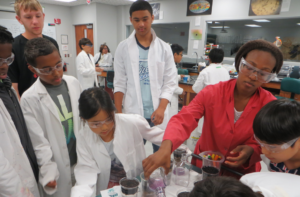Earning a PhD opens doors to a wide range of career opportunities across academia, industry, government, and beyond. While many students begin their PhD programs with specific career goals, research shows that career interests often evolve during their training (Brown et al., 2023). Therefore, exploring career options and remaining flexible to opportunities is important. By embracing career exploration and self-assessment, students can identify their best career options and make informed decisions about their next steps after graduation.

The Many Career Options for PhD Graduates
PhD graduates today find themselves in diverse roles, with opportunities extending beyond traditional academia. Career paths include:
- Academia: Research-intensive faculty positions, teaching-focused roles, or administrative leadership.
- Industry: Roles in biotechnology, data science, or consulting, often in research or management positions.
- Government and Nonprofit Organizations: Research or policy roles in agencies such as the NIH (National Institutes of Health) and FDA (Food and Drug Administration), and others.
- Additional Careers: Science communication, medical writing, marketing, patent law, or entrepreneurship.
During their training, PhD students develop highly transferable skills—critical thinking, project management, data analysis, communication, and problem-solving—that are highly valued across sectors (Sinche et al., 2017). Recognizing the value of these skills can expand career options for graduates.
Continue reading “Exploring Career Options for PhD Students: Planning for Success”
 This motivational quote has echoed throughout my life from childhood. It has inspired me to be fearless in dreaming, to be ambitious and to reach for those goals without fearing failure. So, naturally at the ripe age of 10, my goal was to become a scientist and discover a cure to both AIDS and cancer with a secondary plan of becoming this nation’s first female President. However, as I grew older, I realized my genuine interest and excitement for science and that I enjoyed not only learning about various scientific concepts but also sharing this information with others. Therefore, I completed a Bachelor’s of Science degree with a major in Molecular Biology and minor in Chemistry and decided to continue my studies as a graduate student at UW-Madison in the Cancer Biology graduate program. My goal was to graduate and aid in disseminating scientific knowledge.
This motivational quote has echoed throughout my life from childhood. It has inspired me to be fearless in dreaming, to be ambitious and to reach for those goals without fearing failure. So, naturally at the ripe age of 10, my goal was to become a scientist and discover a cure to both AIDS and cancer with a secondary plan of becoming this nation’s first female President. However, as I grew older, I realized my genuine interest and excitement for science and that I enjoyed not only learning about various scientific concepts but also sharing this information with others. Therefore, I completed a Bachelor’s of Science degree with a major in Molecular Biology and minor in Chemistry and decided to continue my studies as a graduate student at UW-Madison in the Cancer Biology graduate program. My goal was to graduate and aid in disseminating scientific knowledge.